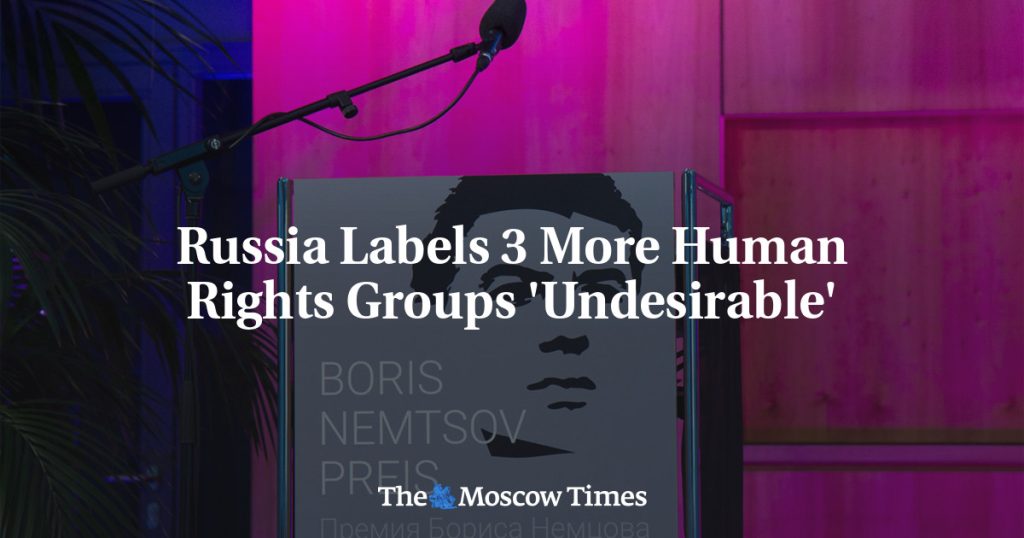Russia has recently designated the Boris Nemtsov Foundation for Freedom, the Friedrich Naumann Foundation for Freedom, and Ukraine’s Center for Civil Liberties as “undesirable” organizations, as announced by the Justice Ministry. Such organizations are now banned from operating within Russia, and it is illegal for individuals and media outlets in the country to share or republish their content. The Center for Civil Liberties, founded in 2007, focuses on promoting human rights, democracy, and solidarity in Ukraine. Since the Russian invasion of Ukraine, the organization has been investigating suspected war crimes against Ukrainian citizens, leading to its joint award of the 2022 Nobel Peace Prize with Ales Bialiatski and Memorial, a Russian human rights organization.
The Boris Nemtsov Foundation for Freedom was established in Germany in 2015 by Zhanna Nemtsova, the daughter of the late Kremlin critic Boris Nemtsov. Its mission is to preserve and develop human capital, promote freedom, education, and human rights. The Friedrich Naumann Foundation for Freedom, founded in 1958, focuses on offering liberal political education in Germany and globally. Despite their important work in the field of human rights and democracy, these organizations have been labeled as “undesirable” by the Russian government, with no specific explanation provided by the Justice Ministry for its decision.
Following the ban on these organizations, they are now prohibited from operating within Russia, leaving a gap in the advocacy for human rights and democracy within the country. This move raises concerns about the freedom of speech and the ability of individuals and media outlets to access and share information from these organizations, particularly regarding issues such as human rights violations and democracy. The banning of international organizations like the Friedrich Naumann Foundation for Freedom also limits their ability to provide valuable political education and support to individuals in Russia and around the world.
The designation of these organizations as “undesirable” by the Russian government comes at a time when tensions between Russia and Ukraine remain high following the invasion of Ukraine by Russian forces. The work of organizations like the Center for Civil Liberties in investigating suspected war crimes against Ukrainian citizens is crucial in holding perpetrators accountable and supporting victims of conflict. However, the ban on these organizations within Russia raises questions about the government’s commitment to upholding human rights and promoting democracy in the region, as well as its willingness to engage with international partners in the field of human rights advocacy.
The decision by the Russian Justice Ministry to ban the Boris Nemtsov Foundation for Freedom, the Friedrich Naumann Foundation for Freedom, and Ukraine’s Center for Civil Liberties also has broader implications for the international community and its efforts to support human rights and democracy around the world. By limiting the activities of these organizations within Russia, the government not only hinders their important work but also restricts the flow of information and advocacy on crucial human rights issues. It is essential for the international community to continue to support and advocate for the work of organizations like these, despite the challenges they face in operating within countries like Russia where dissent and free speech are increasingly under threat.
In conclusion, the ban on the Boris Nemtsov Foundation for Freedom, the Friedrich Naumann Foundation for Freedom, and Ukraine’s Center for Civil Liberties as “undesirable” organizations by the Russian government is a concerning development that raises questions about the state of human rights and democracy in the region. The decision limits the ability of these organizations to work within Russia and restricts the flow of information and advocacy on crucial issues such as human rights violations and democracy. It is essential for the international community to continue to support and advocate for the work of these organizations, despite the challenges they face in operating within countries like Russia where freedoms are increasingly restricted.


